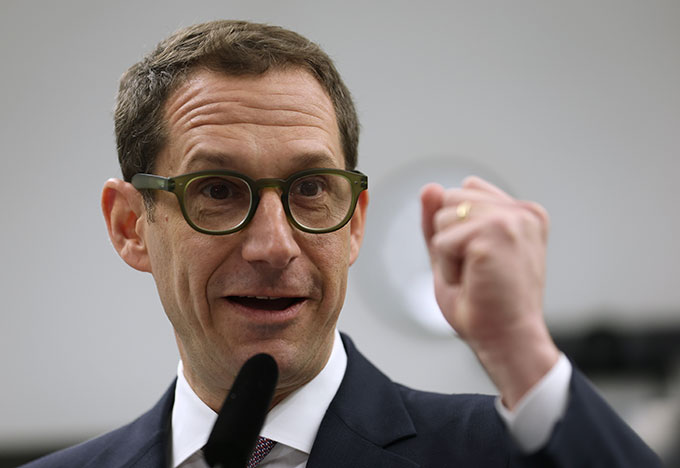Here in San Francisco, it may be premature to declare victory over the far Left and the pathologies resulting from its latest ascendance, but things are looking up. Fifty-seven percent of respondents in a recent San Francisco Chronicle poll described quality of life in the city as excellent or good, up from just 39 percent in 2024. Crime is down 27 percent year-over-year, with petty theft, shoplifting, and other forms of larceny nearly halved from their historical peak. Overdose deaths are down, too, and the number of tent encampments has plummeted 85 percent since the pandemic’s early days.
It’s no surprise, then, that a parade of self-described “moderate” civic clubs, community leaders, and elected officials has lined up to take credit for these improvements—and their claims are not without merit. Despite uneven results, the establishment Left has spent millions of dollars over the last few election cycles organizing, educating, and mobilizing the city’s Democratic voters to support meaningful reforms, such as tying the receipt of welfare benefits to drug screening and treatment. Yet one constituency has made a largely ignored contribution to San Francisco’s turnaround: Republicans.
Finally, a reason to check your email.
Sign up for our free newsletter today.
Despite making up less than 8 percent of the electorate, San Francisco Republicans regularly punch above their weight. Often resigned to a choice between the lesser of two Democratic evils, they’re a coveted swing vote in a city where elections can be won by just a few dozen ballots.
Local elites are loath to admit this in polite company, of course. This state of affairs was most evident in last year’s mayoral election, when the San Francisco GOP, along with conservative groups like the Briones Society (of which I am president), threw their support behind then-candidate Daniel Lurie—who neither accepted nor rejected the endorsements that, in the end, arguably put him over the top.
In the first six months of his administration, Lurie has won over even hardened skeptics. His 73 percent approval rating reflects net favorability among voters across the political spectrum, even as his marquee policy initiatives mirror those that the city’s Republicans have proposed for years: investigating San Francisco’s nonprofit industrial complex, prosecuting quality-of-life crimes, targeting drug traffickers, and clearing encampments.
In many of these efforts, Republicans have served as both catalysts and laborers. For instance, the successful campaign in 2022 to recall Chesa Boudin, San Francisco’s aggressively anti-law enforcement district attorney, was staffed disproportionately by conservatives, with two members of the Briones Society leading the campaign’s volunteers.
It’s not just local Republicans, either. Within weeks of taking office, Lurie directed his police force to blitz open-air drug markets and arrest dealers en masse. But even as Boudin’s replacement, Brooke Jenkins, vigorously prosecuted those arrests, lenient state court judges let repeat offenders go with a slap on the wrist. As a result, crime hotspots downtown remained stubbornly chaotic.

Enter President Trump and his administration’s expanded use of fast-track deportation. “A significant percentage” of drug dealers in San Francisco are illegal aliens from Honduras. While federal agencies and courts have filled the gap created by San Francisco’s prosecutors and judges for years, Trump and his border czar Tom Homan’s expedited removal policies have redoubled Washington’s efforts.
Though reliable data on deportations in California’s Northern District have yet to be released, the law of parsimony suggests that declining crime in San Francisco, on the one hand, and the deportation of many of the individuals generating that crime, on the other, are at least somewhat related. If so, San Francisco’s improved public safety environment should be seen as having materialized despite, not because of, the city’s establishment Left—which still overwhelmingly opposes deporting drug dealers.
Finally, San Franciscans can thank Republicans for the precipitous drop in tent encampments on the city’s streets. Following a ludicrous ruling from three Democratic appointees on the Ninth Circuit in Martin v. Boise, San Francisco and other Western U.S. cities were effectively required to let homeless individuals erect semipermanent structures in the middle of public walkways unless authorities could prove that they had an available shelter bed for every homeless person in the county.
Last year, the six conservative justices on the U.S. Supreme Court put an end to this travesty with their ruling in City of Grants Pass v. Johnson. That case was brought by a Republican-majority city and argued by a law firm traditionally associated with conservative politics.
Voters are taking notice. Republican registration in San Francisco has reached its highest level since 2013 and is up nearly 20 percent in the last three years alone. Scores of these new Republicans come from the roughly one-third of the city electorate that is Asian American—a community feeling betrayed by the Left on issues like public safety and education.
As the ranks of conservative swing voters continue to swell, sensible Democratic leaders have an opportunity to reach out and strike a grand bargain with the GOP to freeze out the far Left for a generation. Whether they’ll have the courage to do so remains to be seen.
Top Photo by Smith Collection/Gado/Getty Images
City Journal is a publication of the Manhattan Institute for Policy Research (MI), a leading free-market think tank. Are you interested in supporting the magazine? As a 501(c)(3) nonprofit, donations in support of MI and City Journal are fully tax-deductible as provided by law (EIN #13-2912529).
Source link


















